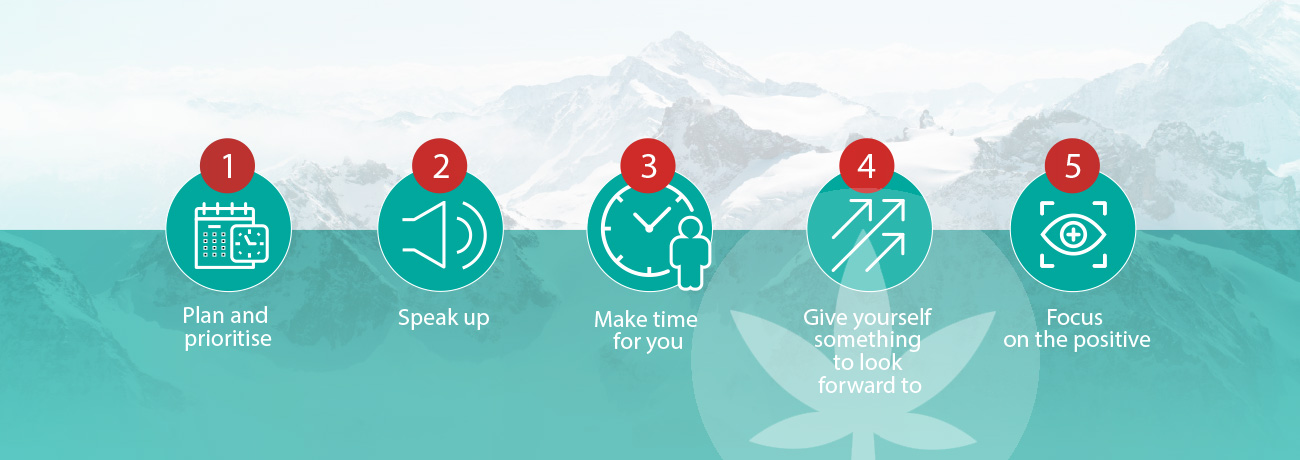Stress Awareness At Work
Last updated:
Published:
The impact of stress in the workplace
Although our body is designed to deal with stressful situations, prolonged and unrelenting stress has a severe impact on physical and mental health. It can lead to more time off work, a loss of productivity, and diminished motivation—all of which further compound the stress you’re already under. The key is learning to break the cycle, spotting when the body’s stress response has become an everyday occurrence, rather than a useful reaction.
Dealing with stress is rarely a simple fix, but that doesn’t mean you should accept the way chronic stress makes you feel. Keeping your body in optimal condition through a balanced diet and regular exercise is an excellent way to improve your ability to cope with stress. You needn’t spend hours at the gym, though. The key is to take a balanced approach, especially when your workload has suddenly spiked thanks to end-of-year deadlines, and your mood has plummeted thanks to inclement weather.
The ECS and stress
Fortunately, we all have an in-built biological system designed to maintain balance—the endocannabinoid system (ECS). Intriguingly, the Department of Psychology at the University of British Columbia proposed that the endocannabinoid system “can oppose the effects of prolonged stress”.
Their conclusion goes hand in hand with evidence that CBD, a cannabinoid found in hemp, mediates the ECS, exerting “beneficial effects in various pathological conditions”. As such, more and more studies are being performed to elucidate how stimulating the ECS with CBD might be beneficial for chronic stress-related pathologies.

Useful tips for dealing with work-related stress
While exercise and diet can help manage the physical impact of stress, it’s hard to know where to start when tackling the psychological symptoms. Below you’ll find simple actions and activities that can help.
1. Plan and prioritise
Even if you're usually a highly organised person, the chaos of end-of-year deadlines can create turmoil. Identifying what is, and isn’t, essential is crucial to staying on top of your workload.
Once you’ve highlighted secondary projects that can wait, be sure to let the rest of your team or manager know, offering a reasonable timeline for completion. Not only will your workload feel far more manageable, but you’ll prevent any sudden surprises or unrealistic expectations from your boss.
2. Speak up
Speaking up, especially when you’re feeling stressed, is vitally important. Unless you are the sole member of any office, you can bet the rest of your team will be feeling the same. And, unless your boss turns into a tyrant at year-end, they’ll recognise the importance of a happy and motivated workforce.
Let them know the concerns you have about workload and timescales. More often than not, there is room for compromise, which won’t damage your standing in the workplace.
3. Make time for you
While it probably isn't realistic to book a two-week holiday in the Bahamas to help unwind, a mere ten minutes of mindful meditation can work wonders. Alternatively, try going for a walk on your lunch break or giving yourself enough time in the evening to catch up on your favourite Netflix series.
4. Give yourself something to look forward to
Treating yourself doesn’t have to be a grand gesture. Something as simple as booking a meal with your partner can make a week at work that little bit more manageable. Rather than focusing on the impending deadline, there's an activity, object, or event to look forward to instead.
5. Focus on the positive
It’s all too easy to get bogged down in everything that does or could go wrong. This becomes even more common when the pressure is on and stress levels are at an all-time high. The reality is, successes at work aren’t exclusive to huge projects; it’s all about learning how to spot them.
During a busy period of work, try, at the end of every day, to think of one thing you’re happy you’ve achieved. You’ll quickly realise that even if your workload has doubled, you’re still making progress.
They may sound simple, but the steps above can go a long way to keeping you motivated and on track with end-of-year deadlines. It may require one, two, or all of the tips mentioned, but don’t be afraid to try a combination and see what works for you.









